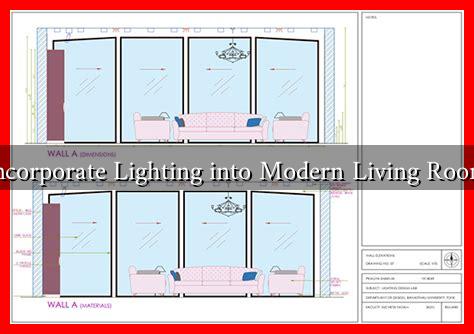-
Table of Contents
How to Incorporate Lighting into Modern Living Room Design
Lighting is a crucial element in modern living room design, influencing not only the aesthetic appeal but also the functionality and mood of the space. With the right lighting, a living room can transform from a simple gathering area into a stylish and inviting environment. This article explores various strategies for incorporating lighting into modern living room design, providing insights and examples to help you create the perfect ambiance.
The Importance of Lighting in Interior Design
Lighting serves multiple purposes in interior design, including:
- Enhancing Aesthetics: Well-placed lighting can highlight architectural features, artwork, and furniture.
- Creating Mood: Different types of lighting can evoke various emotions, from cozy and intimate to bright and energizing.
- Improving Functionality: Adequate lighting ensures that the space is practical for activities such as reading, entertaining, or relaxing.
According to a study by the American Society of Interior Designers, 90% of designers believe that lighting is one of the most important elements in creating a successful interior space. This statistic underscores the significance of thoughtful lighting design in modern living rooms.
Types of Lighting to Consider
When designing your living room, it’s essential to incorporate a mix of lighting types to achieve a balanced and functional space. The three primary types of lighting are:
- Ambient Lighting: This is the general illumination of the room, often provided by ceiling fixtures or recessed lighting. It sets the overall tone and brightness.
- Task Lighting: Task lighting focuses on specific areas where activities take place, such as reading lamps or pendant lights over a coffee table.
- Accent Lighting: Accent lighting is used to highlight particular features, such as artwork or architectural details. This can be achieved with wall sconces or spotlights.
Layering Your Lighting
Layering is a key concept in modern living room design. By combining different types of lighting, you can create depth and interest in the space. Here’s how to effectively layer your lighting:
- Start with Ambient Lighting: Install a central ceiling fixture or recessed lights to provide a base level of illumination.
- Add Task Lighting: Incorporate floor lamps or table lamps in areas where you read or work. For example, a stylish arc floor lamp can provide both function and flair.
- Incorporate Accent Lighting: Use wall sconces or LED strip lights to draw attention to artwork or architectural features. This not only enhances the visual appeal but also adds a dramatic effect.
Choosing the Right Fixtures
The choice of lighting fixtures can significantly impact the overall design of your living room. Here are some tips for selecting the right fixtures:
- Consider Scale: Ensure that the size of the fixtures is proportionate to the room. A large chandelier can serve as a stunning focal point in a spacious living room, while smaller pendant lights may be more suitable for compact areas.
- Match Your Style: Choose fixtures that complement your design style, whether it’s modern, industrial, or traditional. For instance, sleek metal fixtures work well in contemporary settings, while vintage-inspired pieces can add character to eclectic designs.
- Utilize Dimmers: Installing dimmer switches allows you to adjust the brightness according to the time of day or occasion, enhancing the versatility of your lighting.
Case Studies: Successful Lighting Designs
Several designers have successfully incorporated lighting into modern living rooms, showcasing innovative approaches:
- Case Study 1: A New York City apartment utilized recessed lighting combined with a statement chandelier to create a sophisticated yet cozy atmosphere. The layered lighting allowed for flexibility in mood and function.
- Case Study 2: A California home featured a combination of floor lamps and wall sconces to highlight artwork and create a gallery-like feel. This approach not only enhanced the aesthetic but also provided ample task lighting for reading.
Conclusion
Incorporating lighting into modern living room design is essential for creating a functional and inviting space. By understanding the importance of lighting, utilizing different types, layering effectively, and choosing the right fixtures, you can transform your living room into a stylish haven. Remember, the right lighting not only enhances the beauty of your space but also elevates the overall experience of those who inhabit it. For more inspiration and ideas, consider exploring resources like Architectural Digest.

